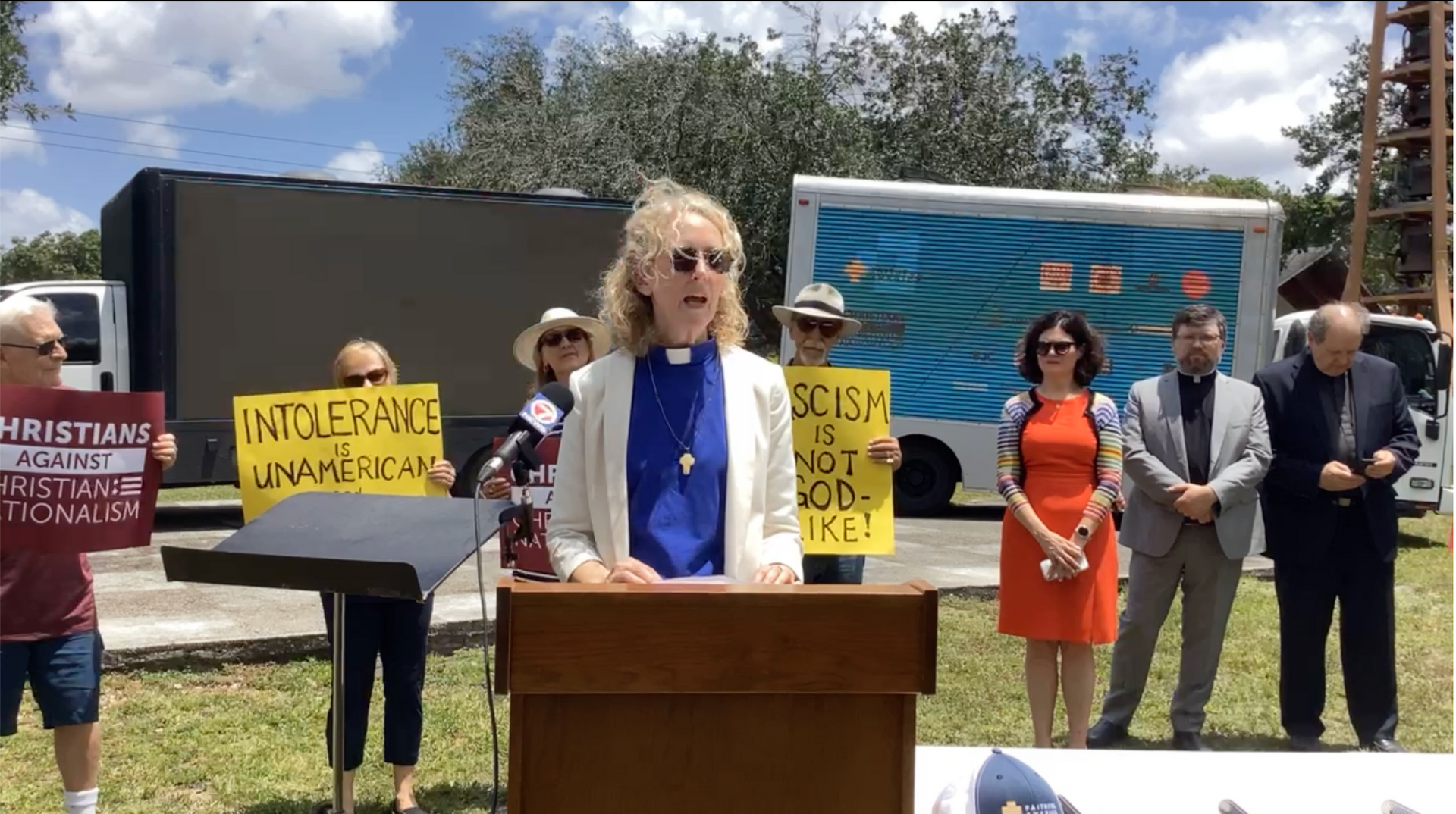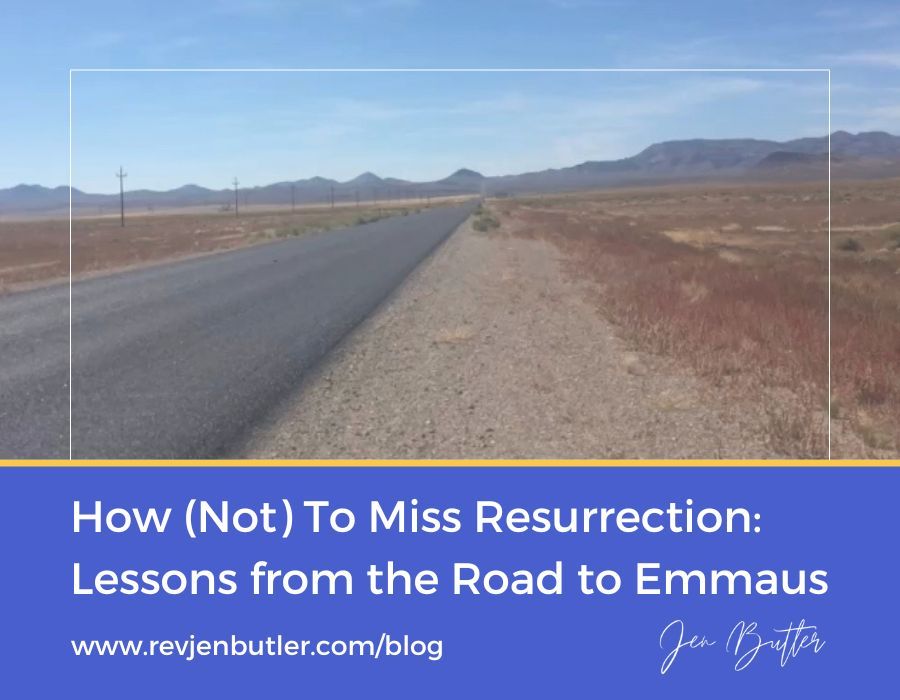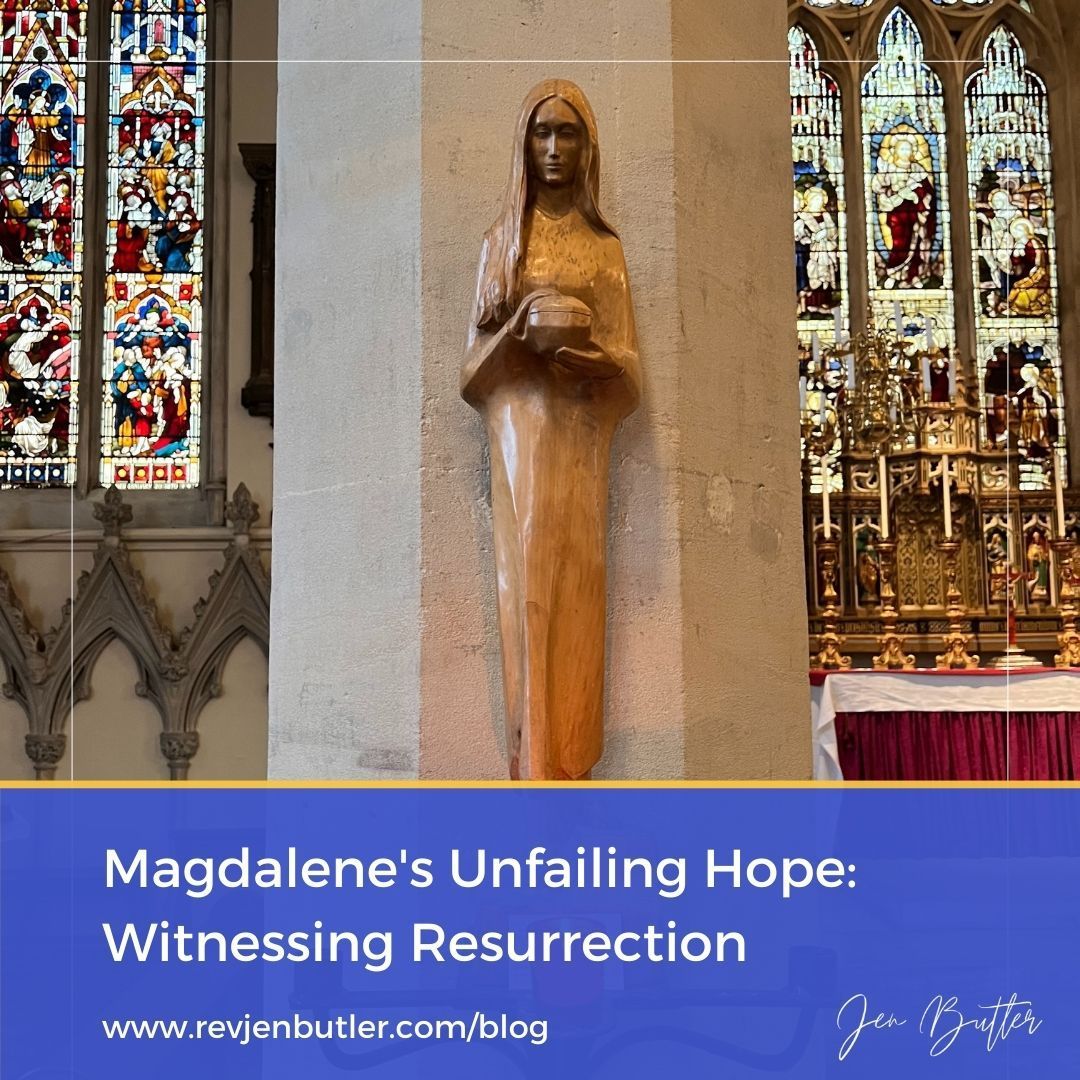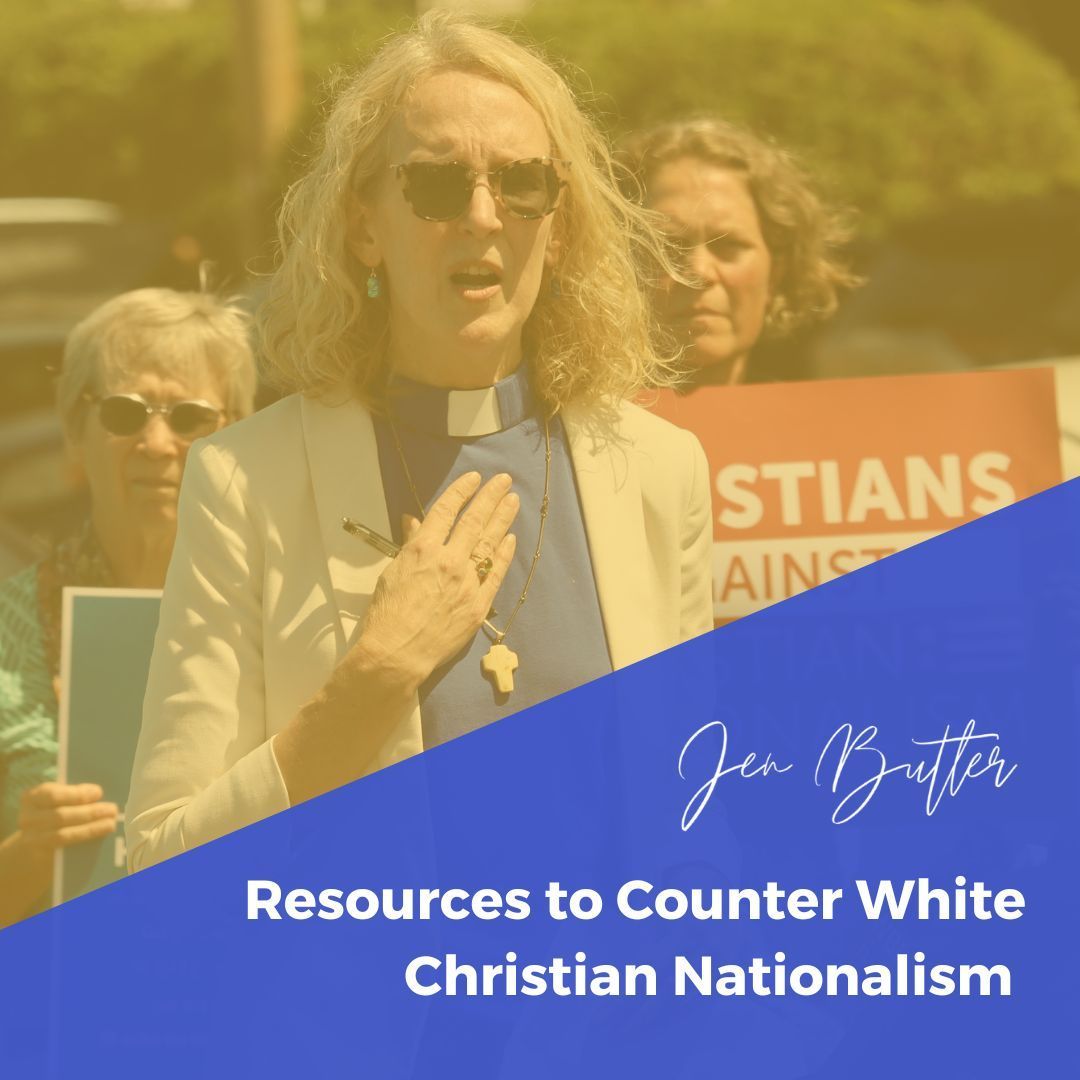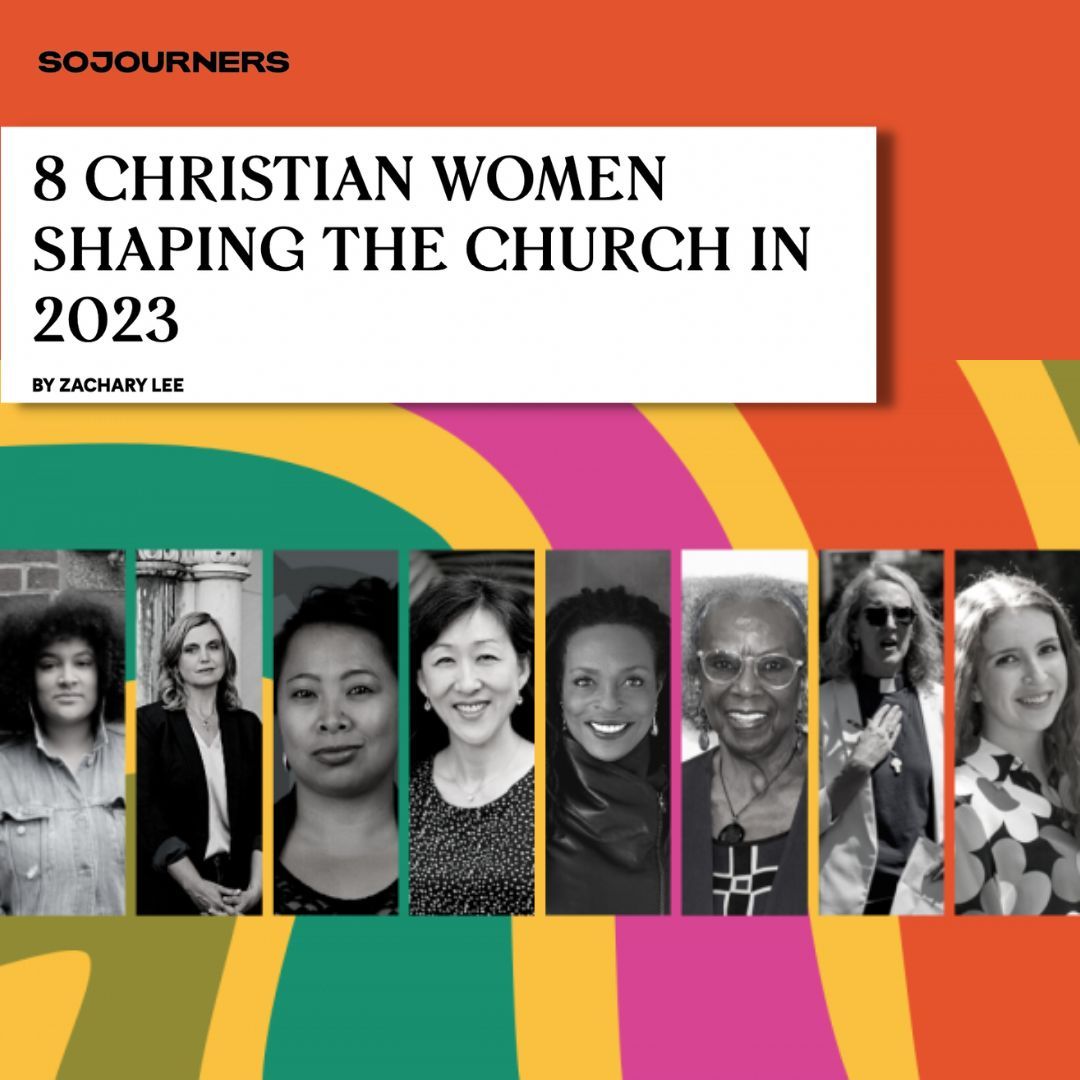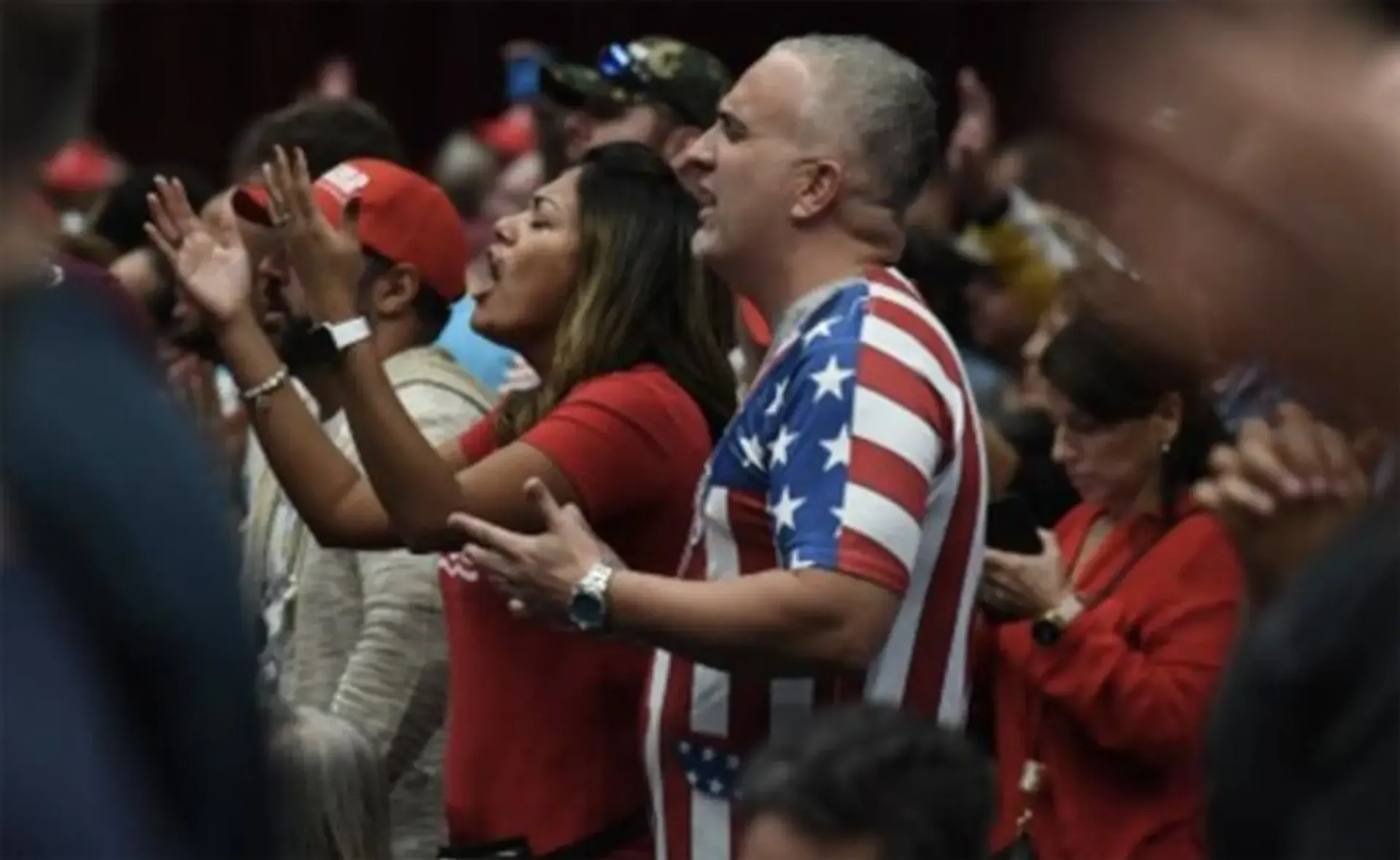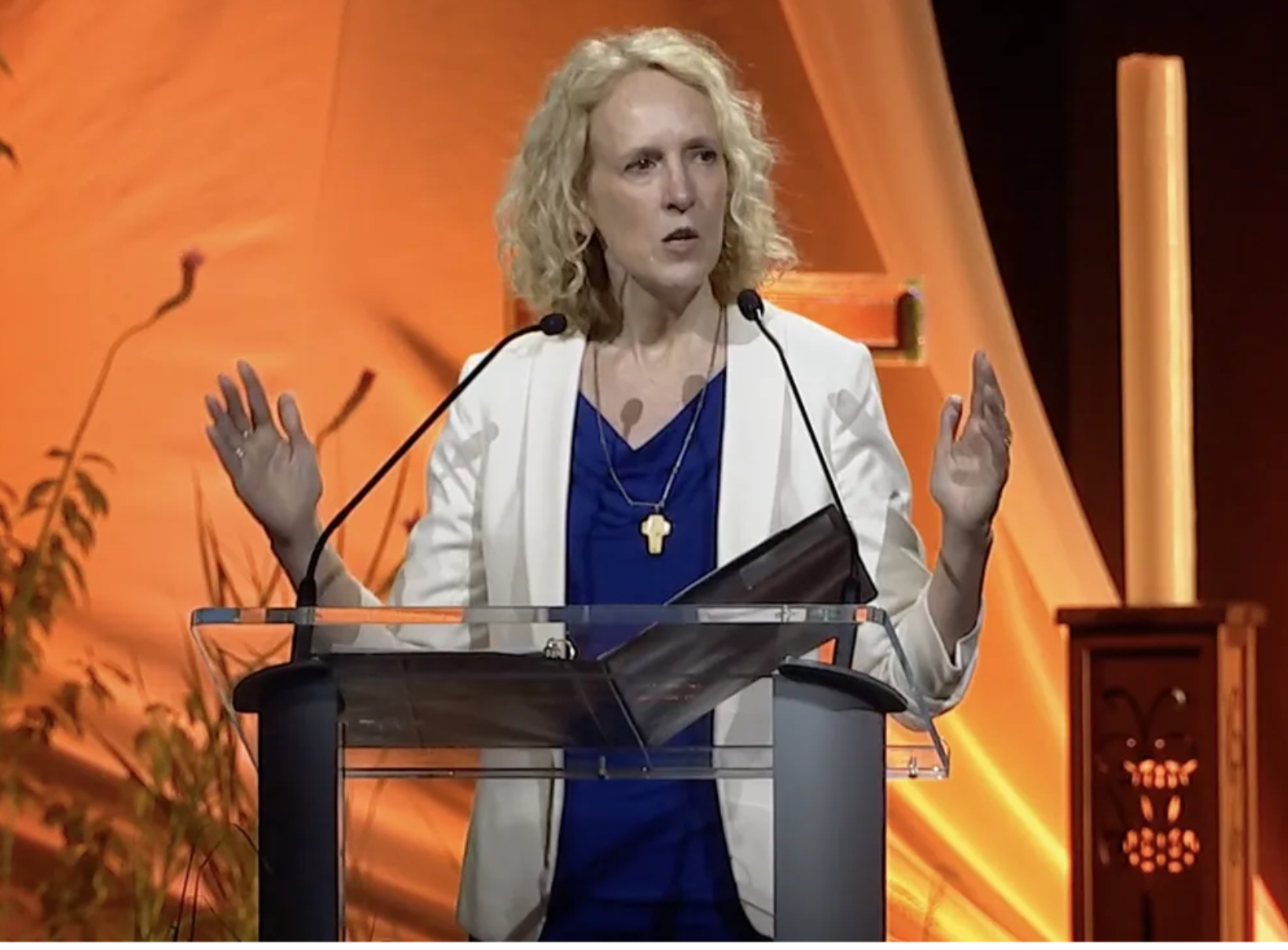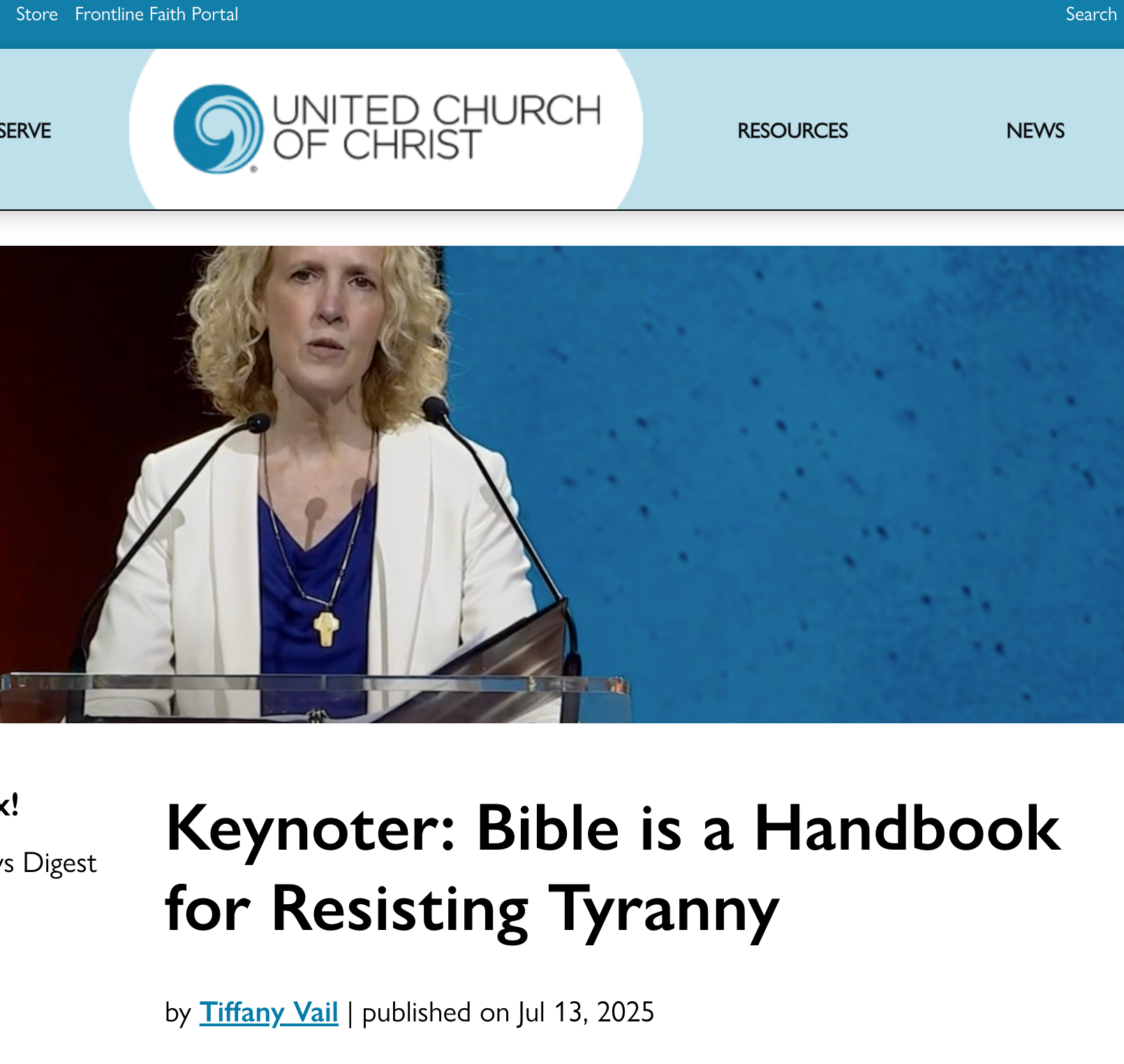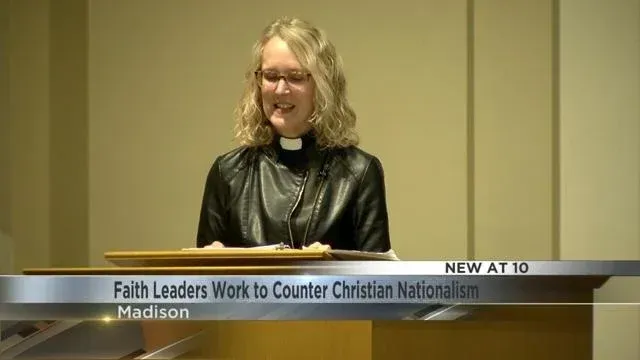Reckoning with History | A Spiritual Discipline
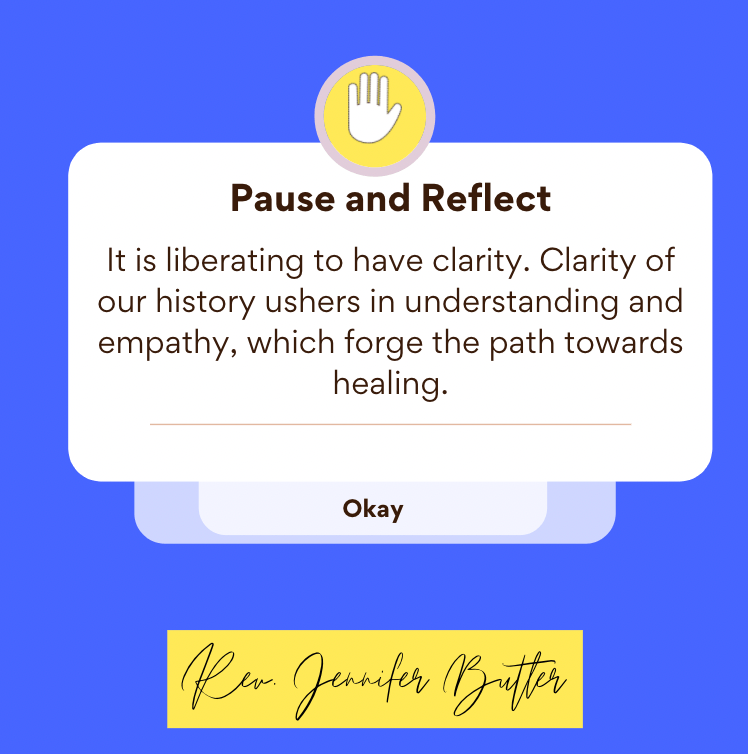
History was not everyone’s favorite subject in school, but what if I were to tell you that knowing the truth of our history is a vital spiritual discipline?
Being the odd nerd that I am, I took a heavy interest in history. But over the past five years, I have come to realize that the history I was taught growing up, in the South, was severely lacking because it was whitewashed. As I came of age, I learned a great deal more, but the fact remained that so much was still hidden from me by academic institutions and those who control the textbooks.
The truth is, it takes a herculean effort to really know history because our culture deliberately obscures it. For centuries, the purveyors of U.S. history have primarily been those in power, and they have written and recorded a triumphalist narrative about who we are. What if we were to look beyond the fragmented history we were taught in school? If we dig a little deeper to find the volumes of truth that have been intentionally left out of our nation's story, we can find enlightenment and knowledge that liberates our communities instead of holding us back.
As I labored through the Trump presidency, a still, small voice echoed in my head, a whisper that said, ‘remember.’ I began to rediscover passages of scripture that issued this command to “Remember,” and I realized this was one that God most often repeated and is almost always followed by “...that you were slaves” or “...that I am the God who brought you out of slavery.” Such commands to be clear-eyed and mindful about God’s liberating act and our communal struggle are followed by a ”therefore.”
Therefore you are to welcome the stranger, to care for the poor and needy, to practice Jubilee debt relief, to honor the Sabbath (the first labor law!)…you get my drift!
I heard God telling me to delve into remembering--knowing our history--as a spiritual discipline. I saw how efforts to end slavery and segregation in America have incurred swift backlash and rollback that denies true liberation. This led me to put together a fuller timeline in my head-- one in which the Civil War, in one sense, had been won by the South. Soon after the war, President Lincoln was assassinated by the Confederates. Andrew Johnson assumed power, pardoned Southern seditionists, and allowed them to take control of their states. They implemented a reign of terror, throwing tens of thousands of freedpeople off the land, reinstalling plantation owners, and implementing Black Codes which forced Black people to sign permanent work contracts--slavery by another name. They also unleashed widespread, politically motivated anti-black violence-- a slow-motion genocide in the words of Frederick Douglass.
Not until the Civil Rights Movement of the 1950s and 60s was slavery by another name ended, but even these gains were quickly evaded and eroded. To give just two examples, white politicians in the North and South systematically resisted legal demands to desegregate. Today public schools remain largely segregated by race. More recently, the Supreme Court gutted the enforcement provisions of the Voting Rights Act ( 2013), the ramifications of which we see today in the wave of voter suppression laws sweeping the nation.
As I examine this newly informed timeline, I recognize the ways U.S. government policies benefited my ancestors at the expense of African Americans. Where my parents and grandparents benefited from the GI Bill and federal housing loans, Black citizens of equal standing were denied those benefits. Our society then chose to base funding for public schools on local property taxes. So Black families have been confined to less-resourced neighborhoods, denied the opportunity to amass wealth, and their children attend less-resourced schools while white families to this day benefit from well-funded ones.
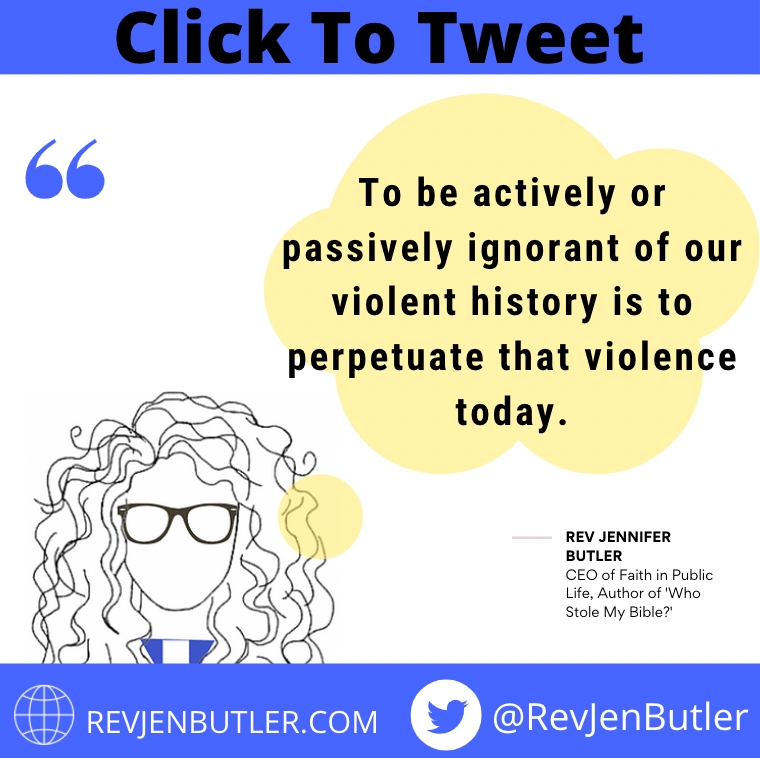
We cannot possibly know how to follow God’s plan unless we draw near to those who are oppressed and understand ways we are complicit in that oppression. To be actively or passively ignorant of our violent history is to perpetuate that violence today.
Notice how this struggle is playing out right now in our national politics. We are always in tension over who gets to define our history. Today, Republicans, emboldened by extremists in their base, are strangely crusading against something called “Critical Race Theory (CRT). CRT exposes how discrimination is engrained in legal systems and policies and is not merely limited to individual bias or prejudice. Even those of us who mean well end up reinforcing racist policies and practices if we have not done such analysis. Fox News and other conservatives allege that CRT is unpatriotic because it calls us to address racial injustice in our history. White conservative Christians, such as a coalition of Southern Baptist seminary heads, even go so far as to call CRT unbiblical without even offering an accurate definition of it.
Those of us in the faith community who are committed to the work of truth-telling and liberation can be champions for Critical Race Theory. We understand it is necessary for reconciliation and for us all to move forward together as a nation.
A Virginia pastor I spoke with this week used CRT to address the COVID pandemic needs in her small town -- a town still segregated due to the legacy of housing discrimination which continued officially up through the 70s (and unofficially after that). At a meeting between faith leaders and the mayor, she spoke up and said that she noticed that everyone in line at the main COVID vaccine site was white. She suggested that this was because they had put the vaccination site in an area accessible to white people and hard for Black residents to get to. This small, Southern town needed to factor this reality into their effort to stop the pandemic in their community. The mayor took action. Without her application of Critical Race Theory, inequity and injustice might have prevailed.
It is important for us to push back theologically as well. In recent weeks, Christian Nationalists have joined this crusade against CRT, attacking a black theologian -- Dr. Chanequa Walker-Barnes whose recent public prayer called out well-meaning white liberals who talk a good game but back out of doing the work of challenging racism. Rather than listen, pray, reflect and atone, her critics went on the attack.
Learning history got personal for me really fast -- perhaps this is why white folks get defensive. I read about segregation in my hometown of Atlanta and learned that although I was among the first to attend a desegregated public school system, my junior high and high school education was in a private Christian academy that denied entry to African Americans. As I researched my family history, I horrifically learned that my ancestors owned slaves. This fact was long hidden from me as a child, and so I have made sure my son knows. Together we consider what that means for us, our choices and
how we exist in this nation.
Those of us who are white need to ask ourselves what does the command to “remember you were slaves” mean for those of us who were not enslaved but are descended from slave owners? Or what does the command mean for those of us who have benefited from the oppression of others as all white people in America have (even if some of us suffered class, sexuality, or gender oppression)? These questions are meant to liberate us spiritually to live in harmony with our neighbor, not shut us down in shame.
God tells the Israelites to build their society around this analysis of oppression. God says “remember this history of who you are,” then lays outlaws (like Sabbath and Jubilee) that undo the economic systems which exploit people. So we too must undo these systems, whatever it takes. And this is what Critical Race Theory does for those of us who live in a country that from its inception has defined Black, Indigenous, and people of color as less than human, and exploited their labor and land for astronomical personal gain, not just centuries ago but through the present.
Empires or autocracies do everything in their power to hide the truth, to numb us to the pain of others. Otherwise, we would connect, empathize and organize to live together in God’s vision for a world of human dignity and abundance. Together we can strive for a world in which creation and human beings are seen not as objects for exploitation, but as good and worthy, to be nurtured and shared.
I'll admit, it's challenging work to ground myself in truth given the dreadful history and continued oppression that white supremacy carves out. But it is liberating to have clarity because that helps me to have understanding and empathy, which can forge a path towards reconciliation and healing. Racism negatively impacts all of us -- and not just spiritually. We see now how the powers that be seek to hide the dynamics of racism and mobilize racial resentment to hide the fact that a wealthy few are benefiting from not paying their fair share of taxes, exploiting our planet, stealing land from Native Americans, refusing to pay essential workers livable wages, profiting obscenely off of health care and pharmaceuticals at great expense to human lives, and many more depredations. Current research is exploring how racism harms white people spiritually, psychologically, and economically. More on that in future reflections!
Action:
- Spiritual discipline takes exploration. A Baltimore Episcopal church found out their church was founded by slaveholders in the 1860s. Since this information came to light, the church has committed to a $500,000 reparations fund. Middle Church, in New York, organized the Middle Church Reparations Taskforce to examine the church history and identify harm. Try leading your congregations, your friends and family, in the exploration of your community and church legacy. Consider what you uncover, and make a plan to address it.
- Do some reading. Here’s a great list of book recommendations that unpack our nation's history in a way that is visceral, truthful, and challenging by incorporating the stories and history of BIPOC.
- Follow writers like Austin Channing Brown, author of 'I'm Still Here: Black Dignity in a World Made for Whiteness.' Take a look at her pinned tweet, buckle up and dive into understanding more about the Black experience.
- Support leaders, like Dr. Chanequa Walker-Barnes, are using Critical Race Theory in their work and are getting slammed for it.
- Support ongoing action to build more equitable systems, like 'The Poor People's Campaign', which organizes against systemic inequity and policies and voter suppression laws
A Prayer:
Almighty, all-powerful, and loving God
Give us the courage to follow you into the trenches
Where systemic racism and lies continue to fester
Give us courage also to examine ourselves
And the ways we uphold structures and systems
That manifest as a boot on our neighbors' necks
Help us to weed out the lies that white supremacy has sown
Help us to plant new seeds of righteousness
Grant us a spirit of discernment, so that we may know your voice
Give us a greater appetite for faithfulness, and truth
Help us to lean into discomfort, and help us to trust you
So that our actions, our lives, demonstrate love for our neighbors
And love for you.
As you have commanded.
